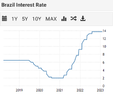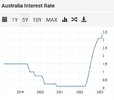- Joined
- 8 June 2008
- Posts
- 12,782
- Reactions
- 18,692
Home Ownership Rate in Australia decreased to 66 percent in 2020 from 66.20 percent in 2018. source: Australian Bureau of StatisticssoWell 35% of homes in australia have a mortgage on them, and obviously some people have more than 1
2/3 ownership is no minority.
renters remaining a HUGE minority.



